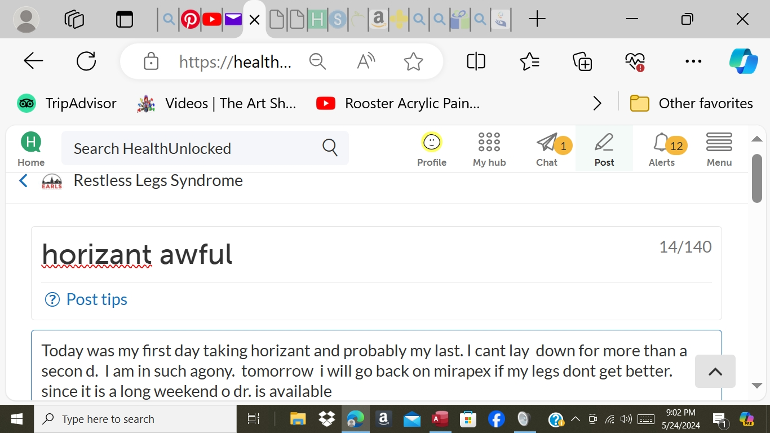Doctors should think before they prescribe meds for rls patients. If someone is coming off mirapax, the dr.
should check what they have coming up in the next few months. What if one of their children is getting married. You can't have withdrawal and a childs wedding. The dr. should inform the patient exactly what to expect when going off mirapax or a medication like that. Patients are not always aware of what to expect. The dr. can never explain it right. They need to live it!!!
